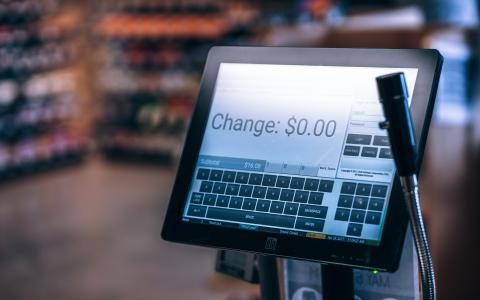
(Bloomberg) - US short-term inflation expectations fell in early March to the lowest level in nearly two years and long-run views also eased, but consumer sentiment still fell due to persistently high prices.
Respondents said they expect inflation to rise 3.8% over the next year, the lowest reading since April 2021, according to the University of Michigan’s preliminary reading. They expect prices to advance 2.8% over the next five to ten years, the lowest in six months.
The group’s sentiment index declined to 63.4 in early March from 67 in February, the biggest drop since June, data released Friday showed. The median estimate in a Bloomberg survey of economists called for the index to hold steady.
The survey was conducted from Feb. 22 to March 15, and the report said about 85% of interviews had been completed prior to the failure of Silicon Valley Bank. However, it’s unclear to what extent confidence will be hit when the university’s final reading for the month is released on March 31.
“Our data indicate little impact of these developments on consumer attitudes,” given the average consumer typically doesn’t pay close attention to financial developments that don’t directly impact them, Joanne Hsu, director of the survey, said in a statement.
Of the interviews completed after March 9 — when many companies were advised to pull money from SVB — only “a handful” of consumers spontaneously mentioned bank failures, according to the report.
“That said, today’s environment for news and information dissemination is very different than other periods of severe market turbulence prior to the pandemic, so it remains to be seen if the salience of financial developments to consumers will increase going forward,” Hsu said.
What Bloomberg Economics Says...
“Consumer sentiment pulled back in early March even before the failure of Silicon Valley Bank, and we expect a sharper deterioration ahead on fears of destabilization in the banking sector... Expected tightening of lending standards by larger banks will further dampen confidence.”
— Eliza Winger, economist
A separate report out Friday corroborated that prospects for the economy were dimming even before the banking crisis. The Conference Board’s index of leading economic indicators dropped another 0.3% in February, marking the 11th straight month that the gauge has fallen.
“The most recent financial turmoil in the US banking sector is not reflected in the LEI data but could have a negative impact on the outlook if it persists,” Justyna Zabinska-La Monica, senior manager of business cycle indicators at The Conference Board, said in a statement.
The group “forecasts rising interest rates paired with declining consumer spending will most likely push the US economy into recession in the near term,” Zabinska-La Monica said.
Data out earlier this week showed US inflation remains elevated and broad based. A gauge of current personal finances declined to the lowest in three months, while the corresponding measure of expectations fell to a six-month low, according to the University of Michigan report.
Buying conditions for large household purchases also decreased. Across the economy, measures of current and expected conditions both fell to three-month lows.
(Adds Bloomberg Economics comment)
By Reade Pickert
With assistance from Kristy Scheuble and Vince Golle




